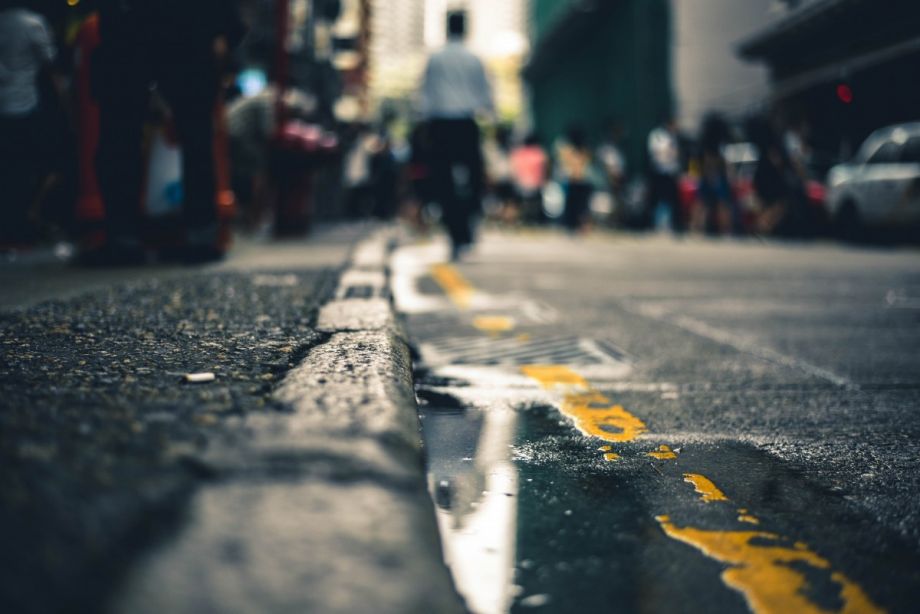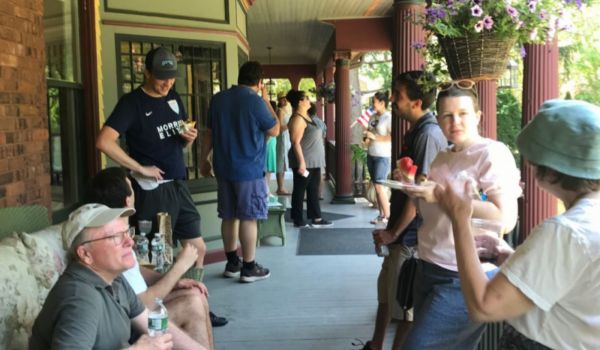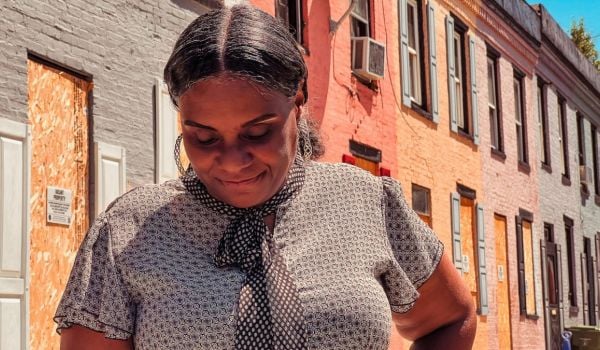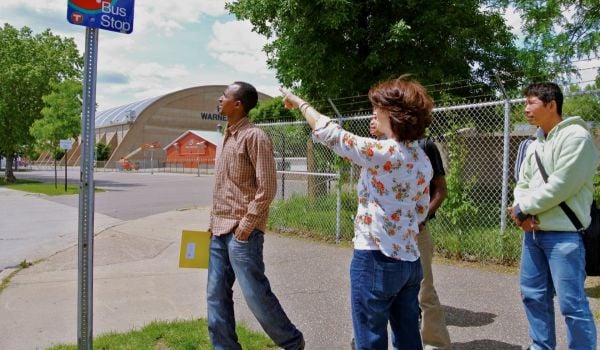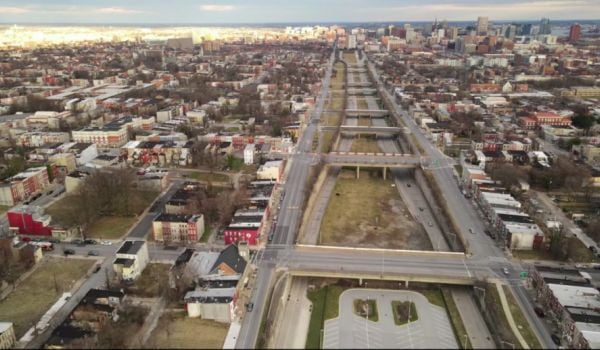Last week, Laurel Mendez and her husband were bringing food to a donation site in Baltimore, like they do several times a month. They got off the bus and immediately came upon a seven-inch crack in the sidewalk.
“Between the broken sidewalks and the big gaps in the sidewalks that haven’t been repaired, I could barely get from the bus stop to somewhere that I could actually roll my wheelchair,” Mendez says. “I had to cross the street and then cross my arms across my chest while barely steering my wheelchair with the other hand to get through a gap between untrimmed bushes and a fence that was sticking out.”
Mendez is hardly alone, and her struggles are nothing new. In Baltimore, as of August 2020, the city had a backlog of 6,700 requests for sidewalk work.
This is compounded by the fact that the city has neither retrofitted old sidewalks as required nor have they consistently built new sidewalks that comply with ADA requirements like curb cuts and width and slope standards, a new class action lawsuit against the City of Baltimore alleges.
The lawsuit, filed on June 10, is the latest effort by accessibility advocates to get Baltimore’s sidewalks to meet the needs of the city’s residents with mobility disabilities. “Data suggests that about 50,000 people in Baltimore are living with a disability. Tons more people visit the city, too, because it’s so conference-heavy,” says Martie Lafferty, director of the Accessibility Project at the Civil Rights Education and Enforcement Center and an attorney on the case. “This problem is pretty apparent from visiting the city.” The complaint asserts that just 1.3% of the city’s 37,806 curb ramps that were surveyed in 2019 met ADA accessibility requirements.
Both Lafferty and Mike Bullis, the executive director of the IMAGE Center of Maryland—an organization dedicated to helping those with disabilities live independently—say that they’ve reached out to the city to try to work with them, but that the city has been unwilling to come to the table. “We reached out to the city in October 2020. We laid out the problem and explained the law that applies to the [sidewalk] problems and offered to work with the city to resolve them. We had one conversation with the city and one or two with their attorney,” Lafferty says. “Their response was lackluster at best. They said they recognized the problem, but that they have a lot of things to work on.”
So they sued. “It’s a huge issue and we felt that at this point, to get the city to take it seriously, we had to file,” she says. Bullis agrees. “We tried to engage the city about a year ago, but they either delayed answering our letters or didn’t answer them at all,” he says. “It became apparent that they weren’t going to just play ball with us unless we sued.”
A press release from Mayor Brandon M. Scott in response to the suit claims that “the City would not wait until it was sued to start implementing changes to meet ADA standards,” and says that a taskforce has been assembled. Scott largely blamed history for the problems. “My administration has inherited a host of longstanding challenges that we are committed to addressing with a true equity approach,” the release reads.
“It was kind of a thought process about how do we make fundamental change and how do we hold the city accountable,” Bullis says of the decision to sue. “We’ve never taken this kind of action, it’s new for us. The best way to hold the city accountable is through the courts and a monitoring process.”
Lafferty says that the plaintiffs aren’t asking for monetary damages beyond the attorney fees and costs associated with going ahead with the lawsuit. What they really want is change. Bullis is hopeful that changes can come without having to go through the often long and drawn-out legal process. “Our hope is that the city will begin engaging with us to create a process that lets us put a plan together to make the city more welcoming and exciting to people with disabilities,” he says.
Based on Lafferty’s previous work, chances are good that the lawsuit will be able to lead to the changes that Bullis and company are hoping for.
Lafferty’s organization and her co-council “have successfully engaged in negotiations and then entered consent decrees with multiple cities including Colorado Springs, Denver, Portland, San Jose, Seattle, Long Beach, and Los Angeles,” she says. “As a result, the accessibility of the pedestrian rights-of-way in those cities is steadily improving. For example, since [the] entry of a consent decree in 2018, Portland has increased accessibility of the public right-of-way by installing and remediating 3,848 curb ramps. Our consent decree requires Portland to complete installation/remediation of a total of 18,000 curb ramps by 2030 and they are on track to do so. Similar results are occurring in other cities we’ve worked with to address inaccessible pedestrian rights-of-way, thereby drastically increasing the opportunity for people with mobility disabilities to travel independently about their cities.”

Cinnamon Janzer is a freelance journalist based in Minneapolis. Her work has appeared in National Geographic, U.S. News & World Report, Rewire.news, and more. She holds an MA in Social Design, with a specialization in intervention design, from the Maryland Institute College of Art and a BA in Cultural Anthropology and Fine Art from the University of Minnesota, Twin Cities.
Follow Cinnamon .(JavaScript must be enabled to view this email address)

